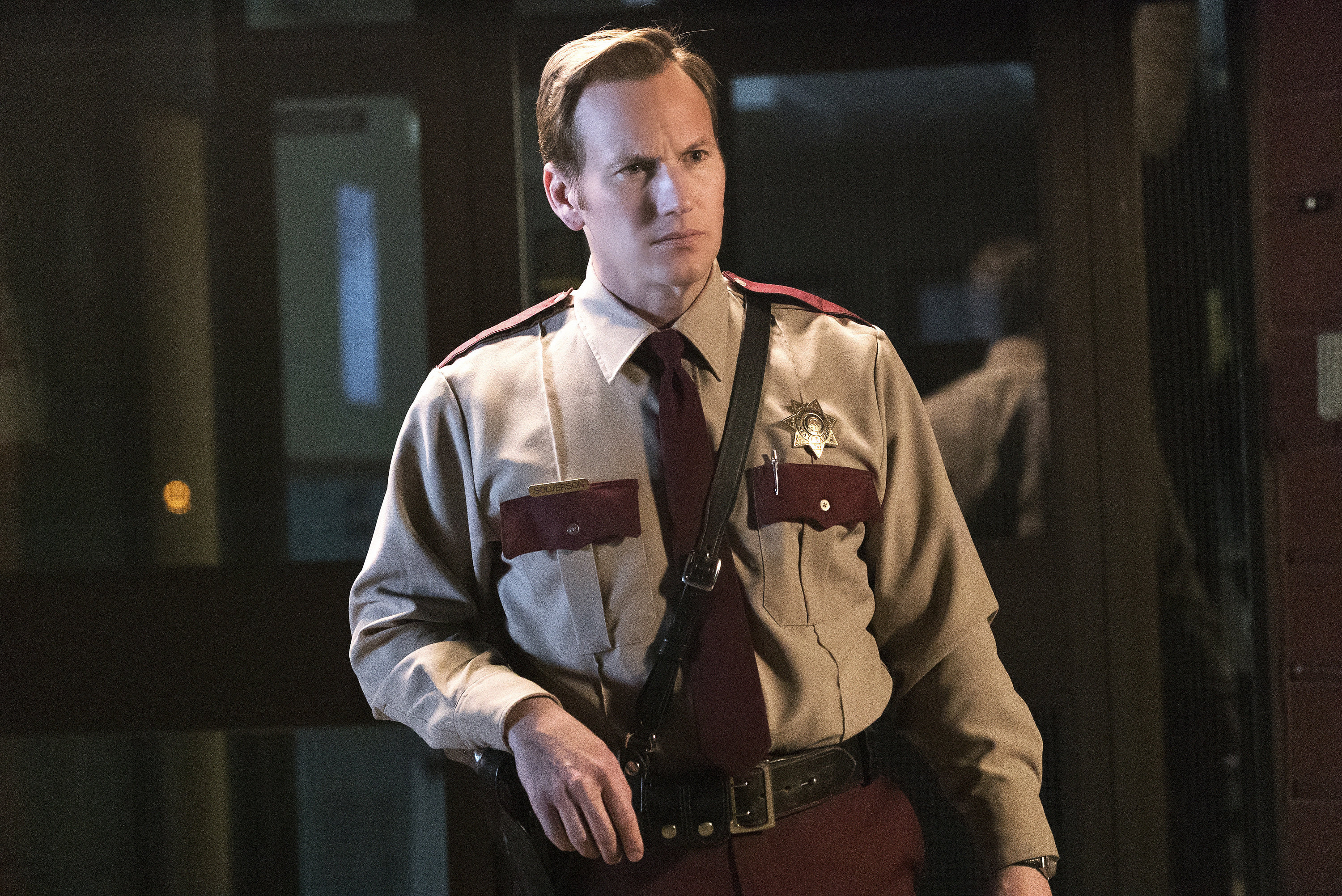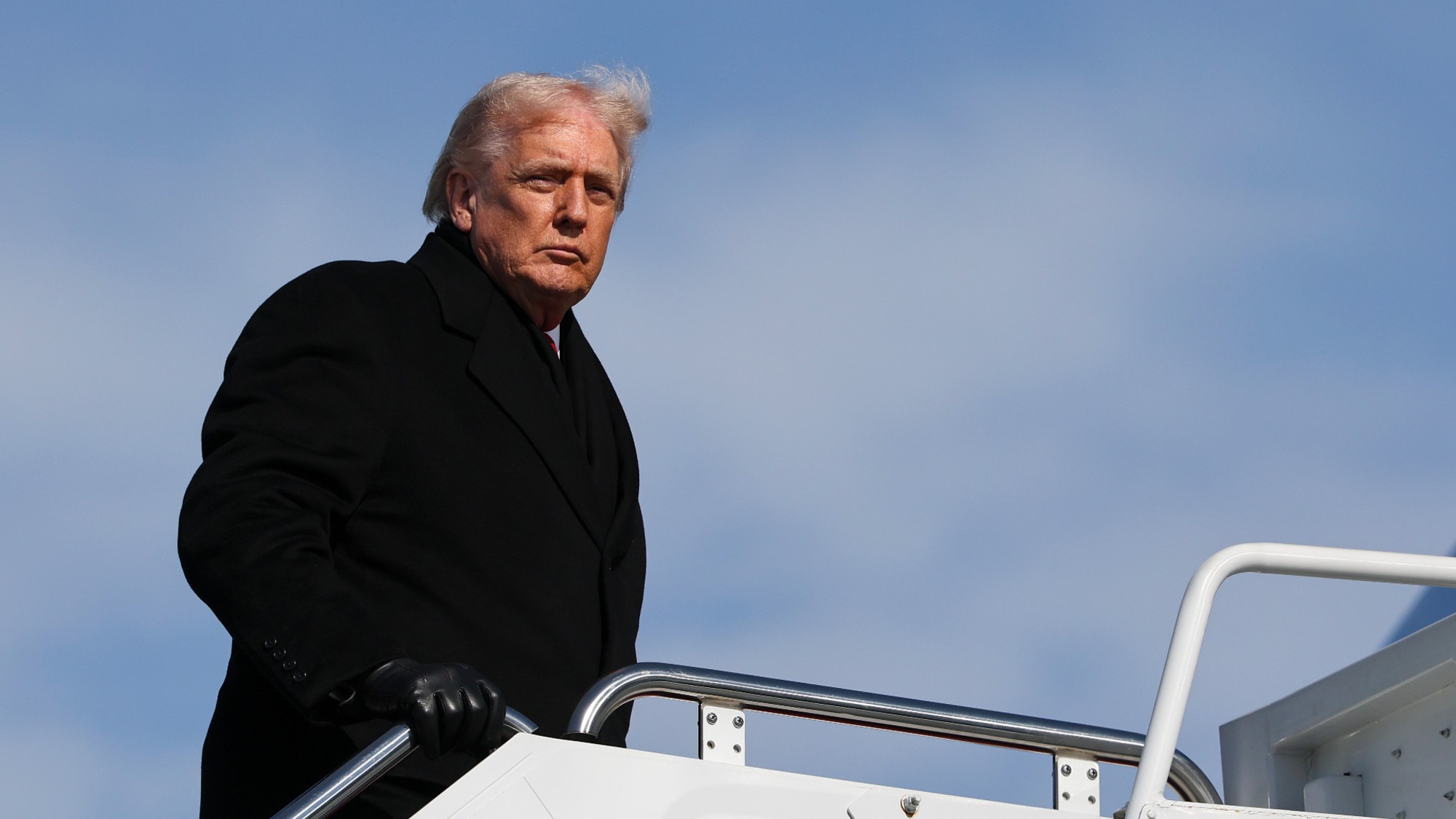Fargo and the fog of war
As its second season unfolds, the FX drama is creating an unsettling world in which the horrors of war have been brought back home


"It's war."
Those are the words, spoken by Floyd Gerhardt in episode four, that kicked off the remarkable second act of Fargo's second season. Since then, the conflict between the Kansas City syndicate and the Gerhardt family has been waged in a series of sudden and bloody turf wars. Last week, the Gerhardts managed to get the drop on their rivals. This week, Kansas City struck back, shooting up the Gerhardt home while Dodd and Bear were distracted by their own assaults on the Blumquist home and the Luverne police station, respectively.
Though it took nearly half the season to reach an actual bloodbath, Fargo's narrative has been infused with the horrors of war from the very beginning. Beginning in 1979 — four years after the United States pulled out of the Vietnam War — Fargo's second season takes place in a time of such violent instability that each of the show's characters have been shaken by it.
The Week
Escape your echo chamber. Get the facts behind the news, plus analysis from multiple perspectives.

Sign up for The Week's Free Newsletters
From our morning news briefing to a weekly Good News Newsletter, get the best of The Week delivered directly to your inbox.
From our morning news briefing to a weekly Good News Newsletter, get the best of The Week delivered directly to your inbox.
Elron Gerhardt, the eldest son of Floyd and Otto (and presumptive heir to the criminal empire), was killed by a sniper while serving in the Korean War. Hanzee, the stoic Native American who works as the Gerhardts' most efficient killer, only opened up when he started discussing what he experienced during the Vietnam War: heat, bugs, and a collection of severed ears.
Fargo has also taken great pains to remind us that Lou Solverson is a veteran. When he has a rare free evening, Lou spends it at the Veterans Association, listening to a friend like Karl Weathers wax rhapsodic about the "foxhole brotherhood." It's how Lou relates to his father-in-law, Hank Larsson, a World War II veteran who once described the trauma of stumbling upon a German soldier who had hanged himself. It's how he connects to a stranger like Ben Schmidt, the law enforcement officer who showed him around Fargo. And most privately and painfully, it's how he understands the cancer that his wife can't overcome — a kind of physical manifestation of the horrible things that have happened in the world.
His experience in war also enables Lou to be steely and unflinching in his job. When he confronted Ed and Peggy about their poorly concealed cover-up of Rye Gerhardt's murder, he couched it in the hard knowledge he acquired during the war. There was a look a soldier would get after he had been shot, Lou explained. "His brain hasn't caught up with the reality, which is, he's already dead. But we see it. The rest of us. And we lie. We say, lay still, you're gonna be fine. If you'd been the war you'd know the look. See, you and Peggy, you got the look. You still think it's Tuesday. You have no idea what's coming."
With this week's episode, "what's coming" has officially become "what's here," and it's every bit as horrifying as Lou warned. Earlier this season, Hank wondered aloud if the Vietnam veterans had brought the war back home with them (a concern Lou later passed along to none other than Ronald Reagan). By Hank's count, at least 20 people have been killed already, and it's a minor miracle that the episode ends without any major bloodshed. If there's any optimism in this increasingly dark narrative, it's that a trio of men working within the law — Lou Solverson, Hank Larsson, and Karl Weathers — manage to stand their ground and do their part to ensure that no one gets killed.
A free daily email with the biggest news stories of the day – and the best features from TheWeek.com
But the show's most ruthless and single-minded killers are clearly just getting started. As he leads the Kansas City army off to shoot up the Gerhardt compound, Mike Milligan recites "Jabberwocky," the Lewis Carroll poem that appears in one of the most memorable sections of Through the Looking Glass. At first, it seems like another rhetorical flourish from Fargo's most verbose character — another speech from a man who loves the sound of his own voice so much that he'll recite anything, including a nonsense poem, just to feel the words oozing out of his mouth.
But Fargo cuts Mike off before he finishes reciting the poem — if, indeed, he finishes reciting it at all. Mike ends on the verse about chopping off the Jabberwock's head (which has probably gained a new resonance since Joe Bulo's head was delivered to him in a box). But it's the verse immediately after, which Fargo pointedly omits, that interests me:
"And hast thou slain the Jabberwock?Come to my arms, my beamish boy!O frabjous day! Callooh! Callay!"He chortled in his joy.
Milligan's version of "Jabberwocky" preserves all of the violence without any of the purpose. Without that celebratory stanza, the poem isn't the story of a family's heroic and victorious quest to destroy an evil beast; it's the story of a brutal slaying committed for its own sake — an empty and solitary triumph built on a merciless killing. In Fargo, there's no such thing as a violent victory, and those who are left standing when the dust settles will already have lost too much to celebrate.
Read more Fargo recaps:
Scott Meslow is the entertainment editor for TheWeek.com. He has written about film and television at publications including The Atlantic, POLITICO Magazine, and Vulture.
-
 ‘Ghost students’ are stealing millions in student aid
‘Ghost students’ are stealing millions in student aidIn the Spotlight AI has enabled the scam to spread into community colleges around the country
-
 A running list of everything Donald Trump’s administration, including the president, has said about his health
A running list of everything Donald Trump’s administration, including the president, has said about his healthIn Depth Some in the White House have claimed Trump has near-superhuman abilities
-
 NASA’s lunar rocket is surrounded by safety concerns
NASA’s lunar rocket is surrounded by safety concernsThe Explainer The agency hopes to launch a new mission to the moon in the coming months
-
 Walter Isaacson's 'Elon Musk' can 'scarcely contain its subject'
Walter Isaacson's 'Elon Musk' can 'scarcely contain its subject'The latest biography on the elusive tech mogul is causing a stir among critics
-
 Welcome to the new TheWeek.com!
Welcome to the new TheWeek.com!The Explainer Please allow us to reintroduce ourselves
-
 The Oscars finale was a heartless disaster
The Oscars finale was a heartless disasterThe Explainer A calculated attempt at emotional manipulation goes very wrong
-
 Most awkward awards show ever?
Most awkward awards show ever?The Explainer The best, worst, and most shocking moments from a chaotic Golden Globes
-
 The possible silver lining to the Warner Bros. deal
The possible silver lining to the Warner Bros. dealThe Explainer Could what's terrible for theaters be good for creators?
-
 Jeffrey Wright is the new 'narrator voice'
Jeffrey Wright is the new 'narrator voice'The Explainer Move over, Sam Elliott and Morgan Freeman
-
 This week's literary events are the biggest award shows of 2020
This week's literary events are the biggest award shows of 2020feature So long, Oscar. Hello, Booker.
-
 What She Dies Tomorrow can teach us about our unshakable obsession with mortality
What She Dies Tomorrow can teach us about our unshakable obsession with mortalityThe Explainer This film isn't about the pandemic. But it can help viewers confront their fears about death.
